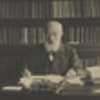The Scholar as Judge: A Contested Persona in Nineteenth-Century Orientalism
DOI:
https://doi.org/10.18352/bmgn-lchr.10266Keywords:
Scholarly Persona, Judge, Peer Review, Orientalism, Michael Jan de Goeje, Theodor NöldekeAbstract
Templates of scholarship, or scholarly personae, mattered to nineteenth-century scholars. A template that appealed to many of them was the ideal of the scholar as an impartial judge. However, there was no agreement about how exactly this ideal was to be understood. Should you be allowed to judge your peers, or should you limit yourself to judging their work? Should the verdict be rendered in public, or should it be a private matter? Michael Jan de Goeje (1836-1909), professor of oriental language in Leiden, was one of the scholars struggling with the judicial ideal. His discussion of this ideal with his peers, especially with his Strasburg colleague Theodor Nöldeke (1836-1930), demonstrates that scholarly personae are not just theoretical constructs used by present-day historian, but also representations of the aspirations of past scholars.
This article is part of the special issue 'Scholarly Personae'.
De geleerde als rechter. Een omstreden persona in het negentiende-eeuwse oriëntalisme
Sjablonen van wetenschappelijkheid, of wetenschappelijke personae, waren van groot belang voor negentiende-eeuwse geleerden. Een sjabloon dat veel van hen aansprak was het ideaal van de geleerde als een onpartijdige rechter. Er was echter geen overeenstemming over hoe dit ideaal begrepen diende te worden. Zou het geoorloofd moeten zijn om een oordeel te vellen over je collega’s of zou je je moeten beperken tot een oordeel over hun werk? Zou het vonnis in het openbaar uitgesproken mogen worden of zou dit een privéaangelegenheid moeten zijn? Michael Jan de Goeje (1836-1909), hoogleraar voor oosterse talen in Leiden, was één van de geleerden die worstelden met het rechterlijke ideaal. Zijn discussies over dit ideaal met zijn collega’s, voornamelijk met de Straatsburgse hoogleraar Theodor Nöldeke (1836-1930), tonen aan dat wetenschappelijke personae niet slechts theoretische constructen van hedendaagse historici zijn, maar ook een beeld geven van de aspiraties van geleerden in het verleden.
Dit artikel maakt deel uit van het themanummer 'Scholarly Personae'.
Downloads

Published
Issue
Section
License
Authors who publish with this journal agree to the following terms:
a) Authors retain copyright and grant the journal right of first publication with the work simultaneously licensed under a Creative Commons Attribution 4.0 International (CC BY 4.0) that allows others to share the work with an acknowledgement of the work's authorship and initial publication in this journal.
b) Authors are able to enter into separate, additional contractual arrangements for the non-exclusive distribution of the journal's published version of the work (e.g., post it to an institutional repository or publish it in a book), with an acknowledgement of its initial publication in this journal.
c) Authors are permitted to post their work online (e.g., in institutional repositories or on their website) prior to and during the submission process.
Authors are explicitly encouraged to deposit their published article in their institutional repository.








